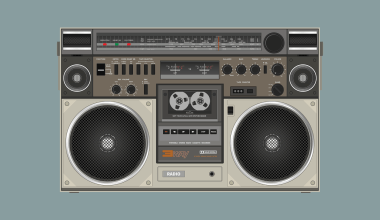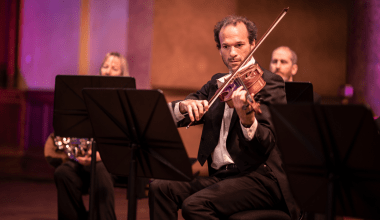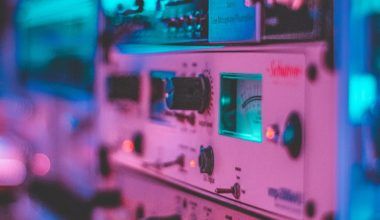Music is like magic. It has the power to heal, inspire, and connect people from all walks of life. But to make that magic, you need the right tools—your musical instruments. Whether you’re a beginner or a professional musician, choosing the right instrument at the right price is important. You might wonder, “How much should I spend on my first guitar?” or “Is buying a premium keyboard worth it?” That’s exactly what this guide is here to help you with.
This blog is for everyone who loves music and wants to know more about music instruments price. Let’s break down everything in simple, easy-to-understand language so you can make the best decision.
Why Are Some Instruments More Expensive Than Others?
Before we dive into prices, it’s important to understand why some instruments cost more than others. Here are a few reasons:
- Brand Name: A well-known brand like Yamaha, Fender, or Steinway often charges more because their instruments are trusted for quality.
- Materials Used: The type of wood, metal, or synthetic material used impacts the cost. For example, a violin made from high-quality spruce wood is more expensive than one made from plywood.
- Craftsmanship: Handcrafted instruments, made with love and attention, are pricier than factory-made ones.
- Technology: Instruments with advanced features like digital effects or built-in amplifiers cost more. For example, an electric keyboard with touch sensitivity and recording capabilities will cost more than a basic one.
Now that we know what affects the price, let’s explore the actual costs of different musical instruments.
A Closer Look at Music Instruments Price by Type
1. String Instruments
String instruments are loved by many because of their versatility. They are perfect for soft melodies or rocking concerts. Let’s look at their price ranges:
- Guitar:
- Beginners: ₹2,000 – ₹10,000
- Intermediate: ₹10,000 – ₹50,000
- Professional: ₹50,000 and above
- Violin:
- Basic Models: ₹3,000 – ₹20,000
- Intermediate: ₹20,000 – ₹80,000
- Professional: ₹80,000 and above
2. Percussion Instruments
Percussion instruments are the heartbeat of music. They set the rhythm and keep everyone grooving.
- Drum Set:
- Entry-Level: ₹5,000 – ₹20,000
- Semi-Professional: ₹20,000 – ₹1,00,000
- Professional Kits: ₹1,00,000 and above
- Tabla:
- Standard: ₹3,000 – ₹8,000
- High-Quality: ₹8,000 – ₹20,000
3. Wind Instruments
Wind instruments are unique because they depend on your breath to create music. From soft flutes to jazzy saxophones, the options are endless.
- Flute:
- Plastic Flutes (Good for Kids): ₹500 – ₹2,000
- Wooden Flutes: ₹2,000 – ₹10,000
- Premium Flutes: ₹10,000 and above
- Saxophone:
- Beginner Models: ₹20,000 – ₹50,000
- Advanced Models: ₹50,000 – ₹1,50,000
4. Keyboard Instruments
Keyboards and pianos bring melody and harmony together.
- Piano:
- Upright Piano: ₹50,000 – ₹3,00,000
- Grand Piano: ₹3,00,000 – ₹50,00,000
- Keyboards:
- Beginner Models: ₹5,000 – ₹15,000
- Intermediate: ₹15,000 – ₹50,000
- Professional: ₹50,000 and above
What Should Beginners Look For?
Starting your musical journey doesn’t mean breaking the bank. Here are some tips:
- Start Small: Go for beginner models that are affordable but reliable. Brands like Casio for keyboards and Yamaha for guitars offer excellent entry-level options.
- Explore Rental Options: If you’re not ready to commit, renting an instrument can save money.
- Check Reviews: Online reviews and videos can help you decide which instrument is best for you.
- Visit a Store: Always try the instrument in person before buying. This helps you understand if it feels right for you.
Where to Buy Musical Instruments in India?
With the rise of e-commerce, buying musical instruments has become easier than ever. Here are some popular options:
- Online Stores:
- Amazon India: Great for budget instruments.
- Bajaao: Specializes in musical instruments.
- Flipkart: Offers good deals on keyboards, guitars, and more.
- Physical Stores:
- Furtados: One of India’s oldest and trusted music stores.
- Local Music Shops: Ideal for trying out instruments in person.
If you’re just starting, go for budget instruments. They are affordable and good for practice. However, if you’re a professional or plan to perform, investing in premium instruments is worth it. (music instruments price) They offer better sound quality, durability, and features.
For example:
- A beginner might start with a Casio keyboard for ₹5,000.
- A professional would prefer a Yamaha digital piano for ₹75,000 or more.
Care and Maintenance Tips for Musical Instruments
Owning an instrument is a responsibility. Proper care can make your instrument last longer and perform better.
- Keep It Clean: Use a soft cloth to wipe your instrument after use.
- Store Properly: Always keep it in a case to avoid dust and damage.
- Regular Tuning: Instruments like guitars and violins need to be tuned often.
- Avoid Extreme Conditions: Too much heat or cold can damage wooden instruments.
Indian Musical Instruments and Their Prices
Traditional Indian instruments like the sitar, tabla, and harmonium hold a special place in the hearts of many. Here’s a quick price guide:
- Sitar: ₹10,000 – ₹1,00,000
- Tabla: ₹3,000 – ₹20,000
- Harmonium: ₹5,000 – ₹50,000
- Dholak: ₹1,000 – ₹10,000
These instruments are often handcrafted, which makes them unique and slightly more expensive.
How to Save Money When Buying Instruments?
- Wait for Sales: Many stores offer discounts during festive seasons.
- Buy Second-Hand: Pre-owned instruments can be a great option.
- Negotiate: Don’t shy away from bargaining at local shops.
- Trade-In Offers: Some shops allow you to exchange old instruments for new ones.
Conclusion
Choosing a musical instrument is like choosing a companion for your musical journey. It should match your passion, style, and budget. Whether you’re a beginner looking for affordable options or a professional seeking premium quality, understanding the music instruments price can make all the difference.
Music is for everyone. So, pick up that guitar, play that piano, or beat that drum. The world is waiting to hear your tune. Keep practicing, keep learning, and most importantly, keep playing.
Related Articles:
For further reading, explore these related articles:
- What Does EP Mean in Music? Everything You Need to Know!
- What Does A&R Mean in Music? Everything You Need to Know!
- The Ultimate Guide to Starting and Growing A Band
For additional resources on music marketing and distribution, visit Deliver My Tune.






